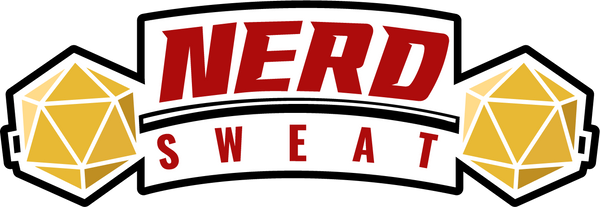
🏳️🌈 Creating Inclusive Tables: How to Foster a Welcoming D&D Game for All
Dungeons & Dragons is a game about imagination, heroism, and self-expression. What better time than Pride Month to reflect on how we can make our tables more inclusive—especially for LGBTQIA+ players and characters?
Whether you're a seasoned Dungeon Master or new to the game, you have the power to create an environment where everyone feels seen, respected, and celebrated.
🎲 Why Inclusion Matters at the Table
TTRPGs offer something rare: a space where people can explore who they are—or who they might be—in a world free of real-world constraints. For LGBTQIA+ players, this can be especially empowering.
But too often, our fantasy tables reflect the same exclusions found in real life. By being intentional about inclusion, we build richer stories and stronger communities.
Example:
In one campaign I ran, a nonbinary player created a shape-shifting druid who used different pronouns depending on their form. This wasn’t just cool—it opened up a table-wide discussion on identity and expression. That conversation would never have happened without a welcoming, open atmosphere.
📅 Start with Session Zero
Session Zero isn’t just for rules—it’s your best tool for building a safe space. Here’s how to make the most of it:
-
Use Safety Tools: Implement tools like Lines & Veils, the X-Card, or the Consent in Gaming checklist from Monte Cook Games. These aren’t just for trauma—they’re for respect.
- 📚 Resource: TTRPG Safety Toolkit
- Ask About Representation: Invite players to share if they want to explore queer identities, chosen families, or gender-diverse characters.
- Establish Pronouns Early: Include a name + pronouns section on character sheets. Normalize using and asking for them.
🧑🤝🧑 Normalize Queer Identities in Your World
Representation isn’t just a checkbox—it should feel as natural in your world as magic swords and talking dragons.
- Include LGBTQIA+ NPCs with depth, goals, and relationships.
- Avoid Tokenism: Make sure queer characters aren’t just there for comic relief or as tragic backstory fodder.
- Highlight Chosen Families: Instead of assuming blood ties, lean into the LGBTQIA+ experience of building family through friendship, loyalty, and shared purpose.
Example:
In a city-based campaign, I introduced two dwarven fathers running a bakery that doubled as an underground safehouse. They weren’t central to the plot, but they made the world feel lived-in and welcoming. Players loved them.
🏰 Make the World Reflect the Table You Want
You’re the architect of your fantasy setting. Why not build a world that breaks the binary?
- Use Gender-Neutral Language: Terms like "they," "partner," or "noble" go a long way.
- Build Inclusive Cultures: Create societies where queerness isn’t "different"—it’s normal.
- Offer Space for Self-Discovery: Let your players tell the story they need, whether it’s a paladin coming out to their god or a bard embracing their fluid identity.
🌟 Final Thoughts: It’s Not About Perfection, It’s About Intention
You don’t need to have all the answers. You don’t need to be queer yourself. You just need to be willing to listen, learn, and adapt.
When you commit to inclusion, you invite everyone at your table to bring their whole self to the game. That’s not just good storytelling—that’s powerful community building.
🧭 Resources to Keep Exploring
-
Consent in Gaming – Monte Cook Games
- The TTRPG Safety Toolkit
- Gayming Magazine – TTRPG
- Critical Role’s "Candela Obscura" and LGBTQ+ Inclusion
Ready to roll for inclusion this Pride Month? Your table could be the one that helps someone see themselves as the hero—for the first time.
